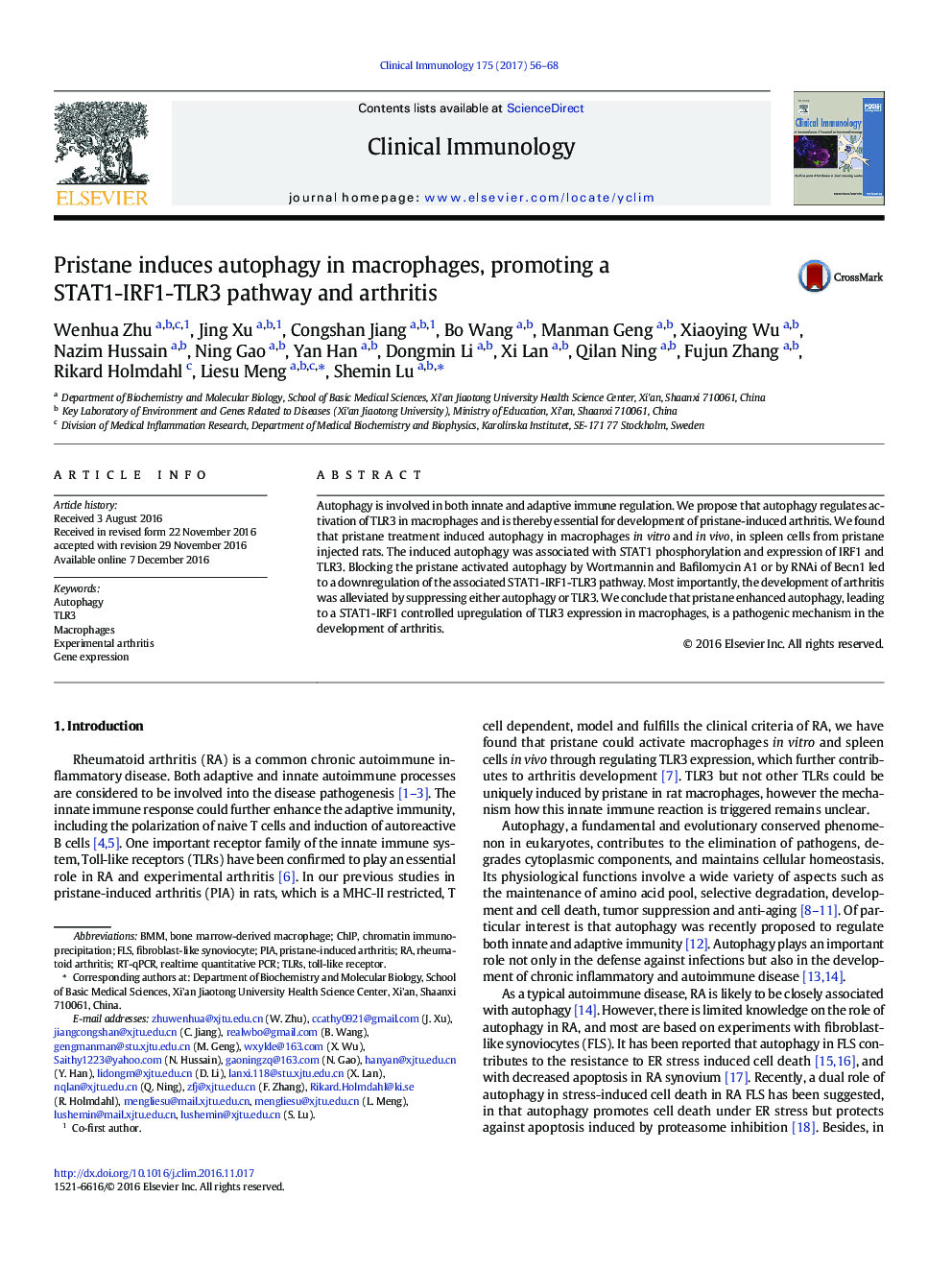| Article ID | Journal | Published Year | Pages | File Type |
|---|---|---|---|---|
| 5654945 | Clinical Immunology | 2017 | 13 Pages |
â¢Autophagy is enhanced in pristane treated macrophages and in spleen of PIA rats.â¢Enhanced autophagy leads to TLR3 upregulation via activation of STAT1-IRF1 pathway.â¢Arthritis development is alleviated by suppressing either autophagy or TLR3.
Autophagy is involved in both innate and adaptive immune regulation. We propose that autophagy regulates activation of TLR3 in macrophages and is thereby essential for development of pristane-induced arthritis. We found that pristane treatment induced autophagy in macrophages in vitro and in vivo, in spleen cells from pristane injected rats. The induced autophagy was associated with STAT1 phosphorylation and expression of IRF1 and TLR3. Blocking the pristane activated autophagy by Wortmannin and Bafilomycin A1 or by RNAi of Becn1 led to a downregulation of the associated STAT1-IRF1-TLR3 pathway. Most importantly, the development of arthritis was alleviated by suppressing either autophagy or TLR3. We conclude that pristane enhanced autophagy, leading to a STAT1-IRF1 controlled upregulation of TLR3 expression in macrophages, is a pathogenic mechanism in the development of arthritis.
